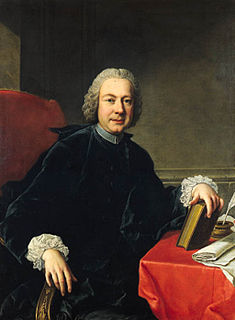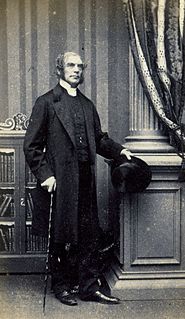A Quote by Walt Whitman
I hear and behold God in every object, yet understand God not in the least.
Related Quotes
God is not a person; God is manifestation itself. We think that God is a superhuman person, but God is not a person. He is not a subject. We can never experience God in a subject/object experience. God is what makes a subject/object experience possible. We can never see God or experience God as separate from ourselves. God is a being but there is no division.
You hear a lot about God these days: God, the beneficent; God, the all-great; God, the Almighty; God, the most powerful; God, the giver of life; God, the creator of death. I mean, we're hearing about God all the time, so we better learn how to deal with it. But if we know anything about God, God is arbitrary.
God is near at hand when you do approach Him in prayer. Oh, comforting truth! A God at hand to hear the softest breath of prayer-to listen to every confession of sin-to every cry of need-to every utterance of sorrow-to every wail of woe-to every appeal for counsel, strength, and support. Arise, O my soul! and give yourself to prayer; for God is near at hand to hear and answer you.
Isaiah was so attuned to God, because of the great crisis he had just endured, that the call of God penetrated his soul. The majority of us cannot hear anything but ourselves. And we cannot hear anything God says. But to be brought to the place where we can hear the call of God is to be profoundly changed.
We hear of the conversion of water into wine at the marriage in Cana as of a miracle. But this conversion is, through the goodness of God, made every day before our eyes. Behold the rain which descends from heaven upon our vineyards, and which incorporates itself with the grapes, to be changed into wine; a constant proof that God loves us, and loves to see us happy.
The object is evident in the name of the discipline. Similarly, theology (theologia) is the study of God. The object of theology is not the church's teaching or the experience of pious souls. It is not a subset of ethics, religious studies, cultural anthropology, or psychology. God is the object of this discipline.
Many of our attempts to understand Christian faith have only cheapened it. I can no more understand the totality of God than the pancake I made for breakfast understands the complexity of me. The little we do understand, that grain of sand our minds are capable of grasping, those ideas such as God is good, God feels, God loves, God knows all, are enough to keep our hearts dwelling on His majesty and otherness forever.
What it does remind us is that 'God' is not to be separated from the quest for the Kingdom of God and is not and cannot be the object of any detached 'scientific' contemplation. Heidegger's critique of onto-theology is also driving a wedge between speaking of God and the aims of science - not so as to get rid of God but rather to free God from a false objectification.






































